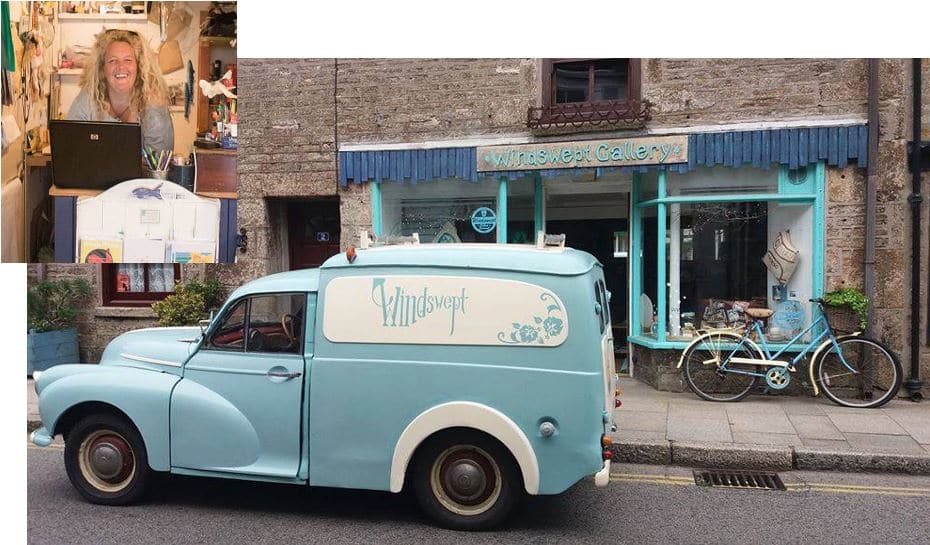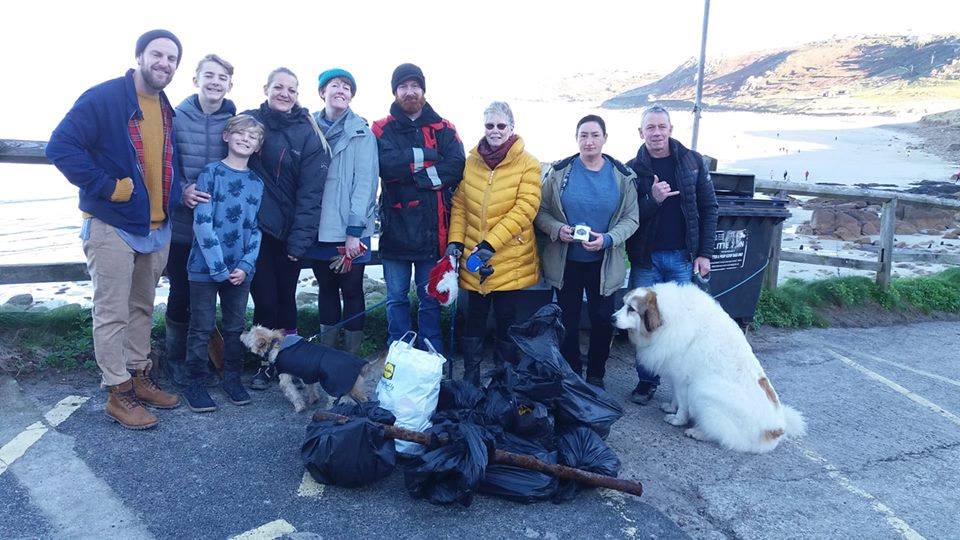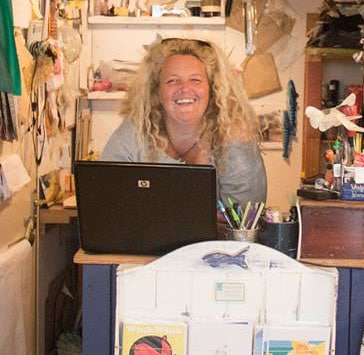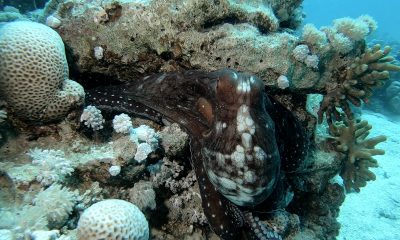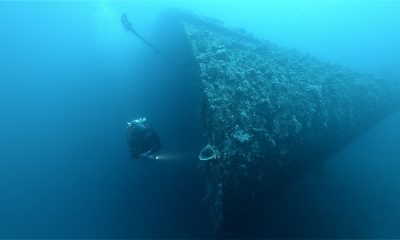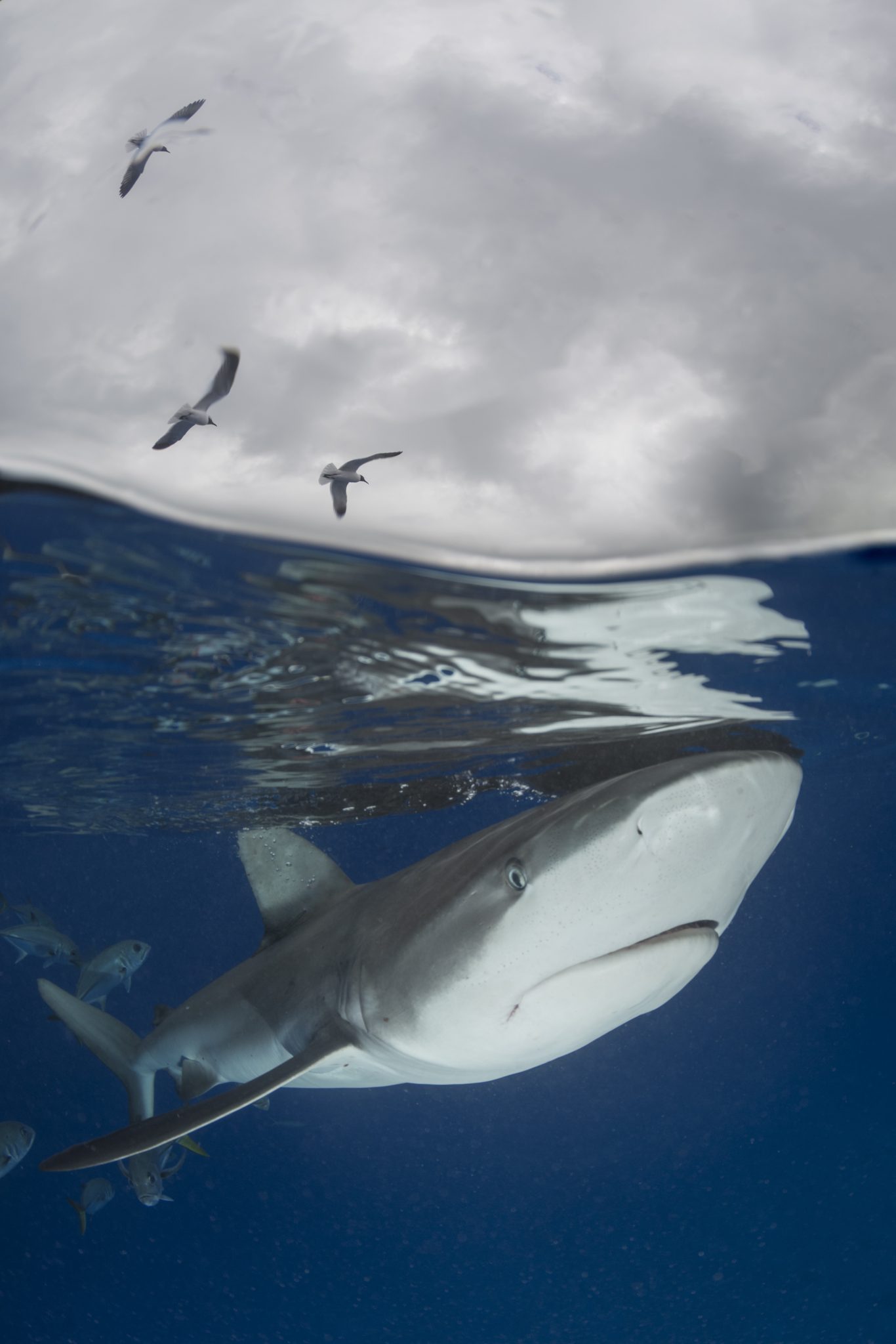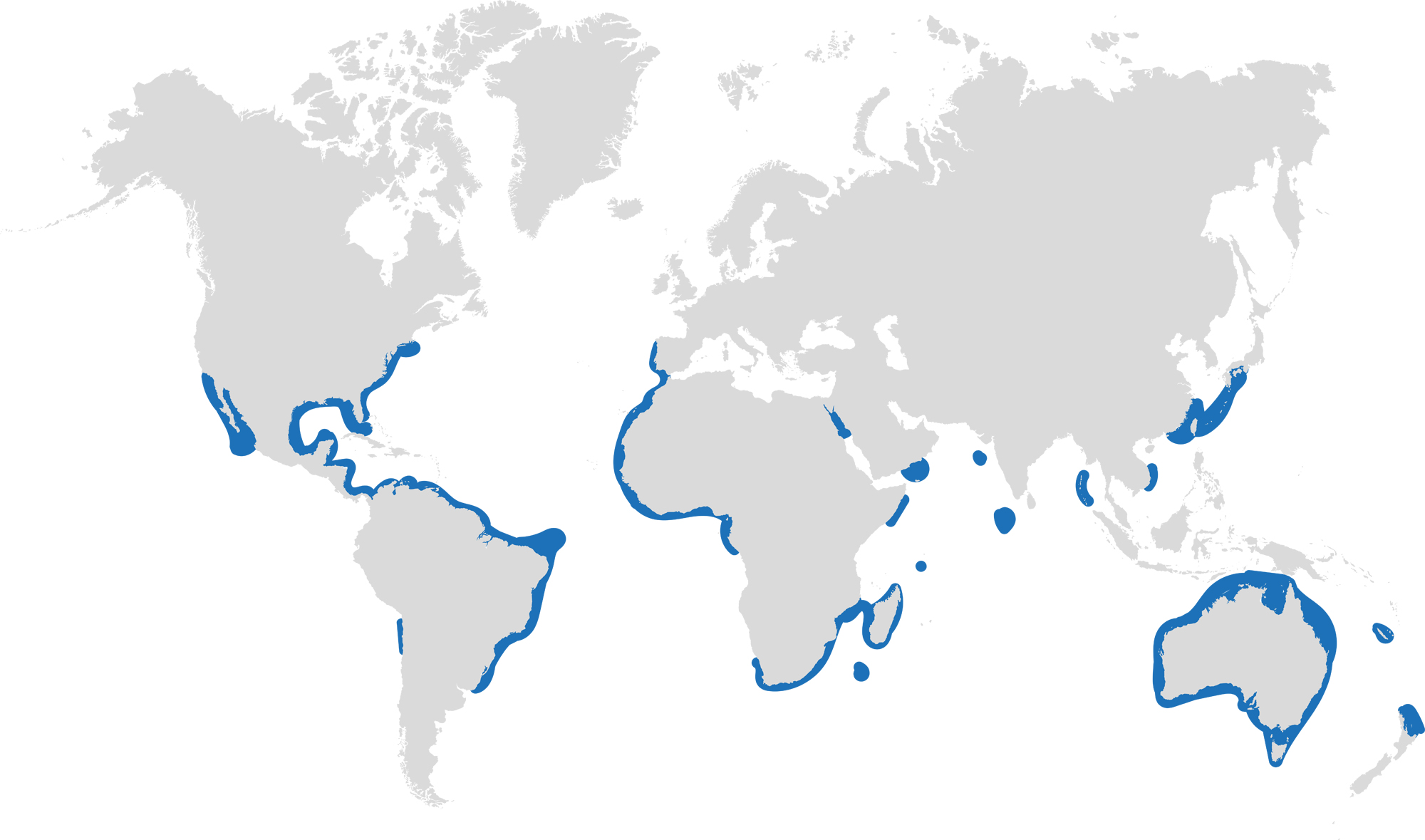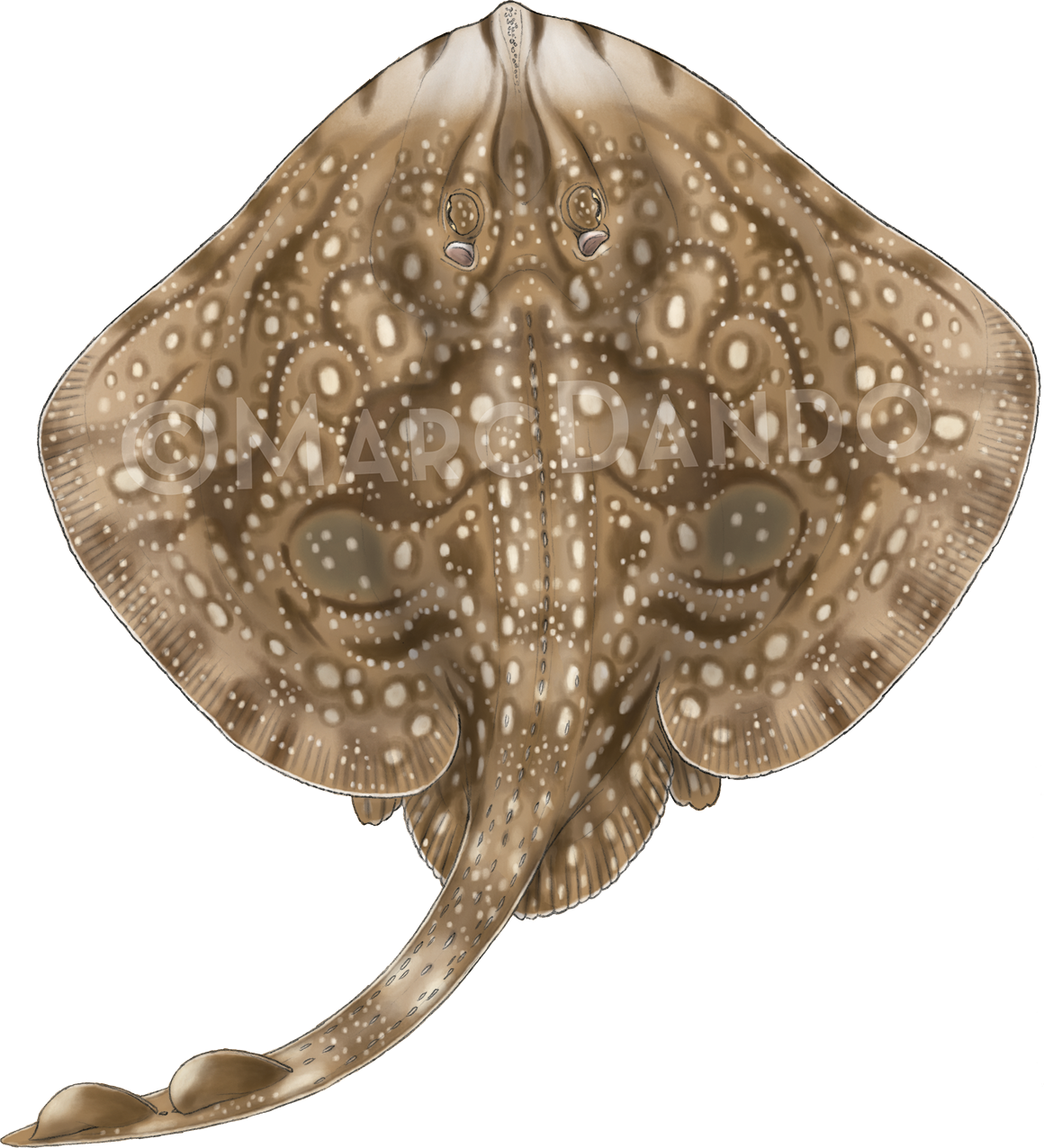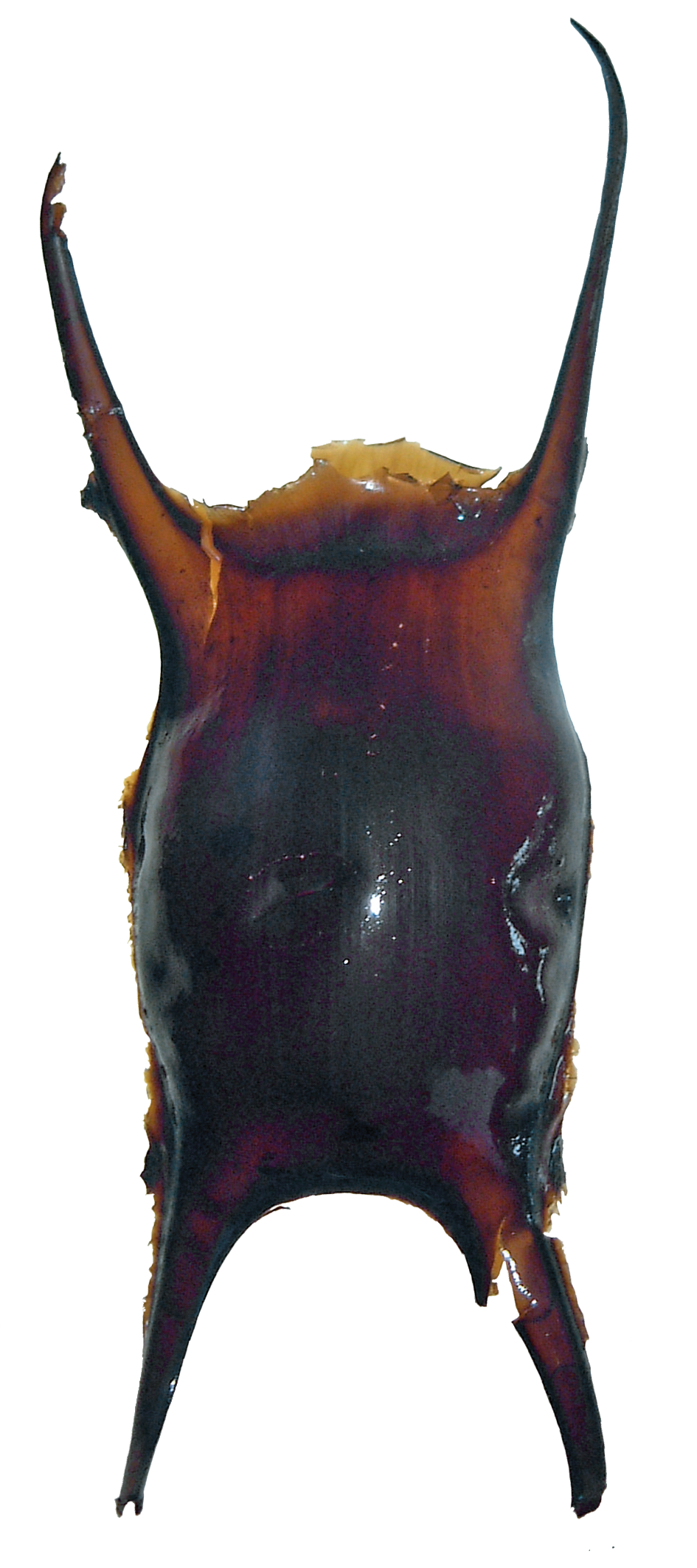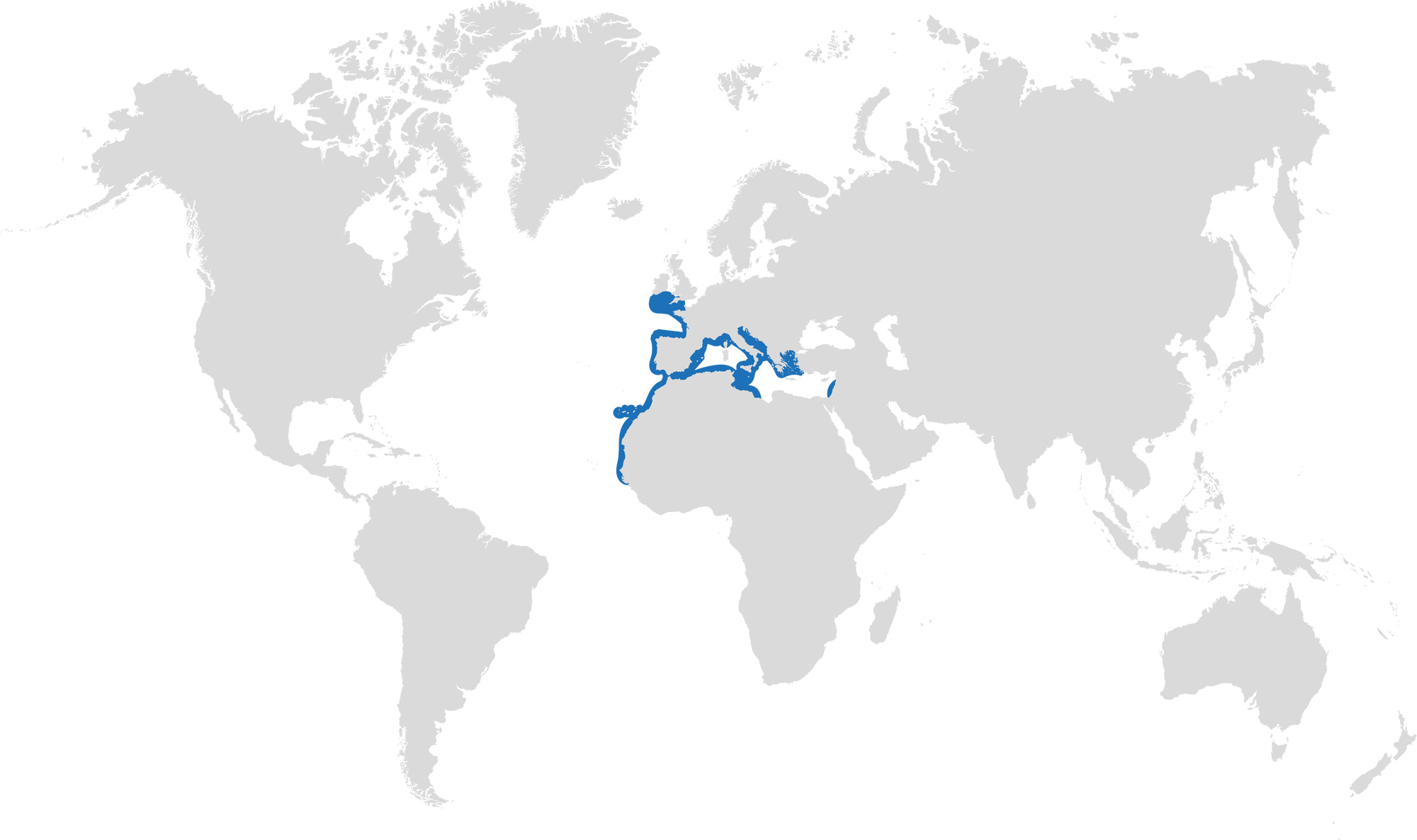Marine Life & Conservation Blogs
Proud of my local town, St. Just, Penwith
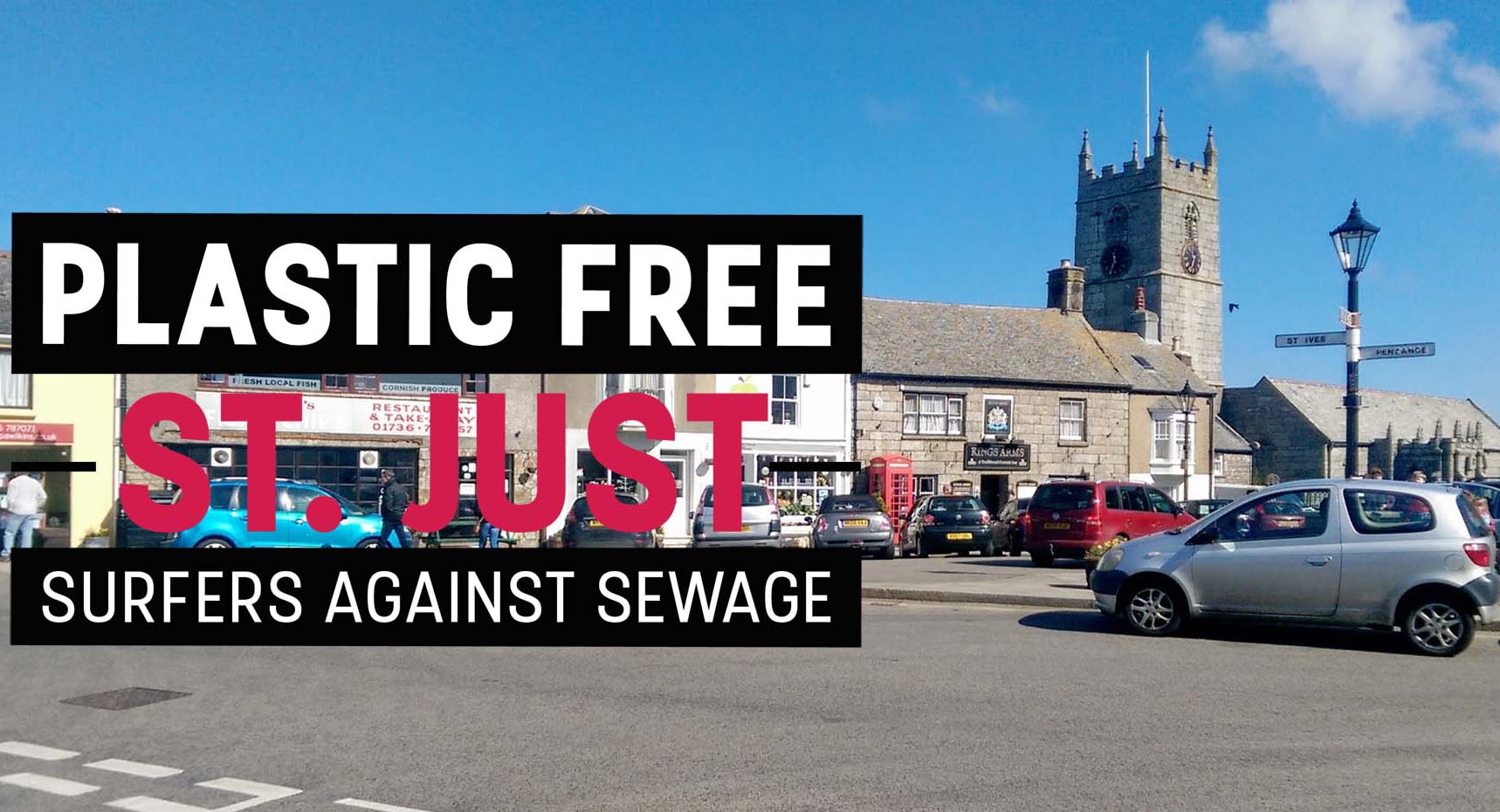
St. Just in West Penwith is not a true coastal town as it lies a few miles inland. But being Cornish, wherever you are, the sea is a great influence in our daily lives. It gives us our weather, our culture, our work place and our great sense of well being. The sea inspires our leisure time, our art and encourages our health. Our beautiful north and south coasts are a wondrous sight and change their mood throughout the year from serene splendour to uncontrollable rage. They are full of an undefinable energy which energises the human soul.
St. Just cares about the sea and it cares about the environment. That is why it recently, in association with Surfers Against Sewage (SAS), became a plastic free town. I’m sure that very few of us are happy with the way our environments are being polluted and probably often complain about it. Well here is the answer. Just get up and do something.
A driving force behind Plastic Free St.Just is Allie Scott, owner of Windswept Gallery. I asked her how this all came about.
Jeff: Hi Allie. Many congratulations to you and St.Just on becoming a plastic free town. Can you tell me what exactly this means?
Allie: Thanks… Basically, in short, this means that as a town we have made a commitment to limiting the amounts, and if possible eradicating, the use of single use plastics. This goes for businesses, local governance, schools, community venues and groups as well as local residents.
Jeff: Is this status recognised nationally by any governing body such as central government or local councils?
Allie: It is. It’s all part of a Government acknowledged scheme, started by SAS, where local Councils across the country acknowledge this as a standard to be achieved in a bid to begin to tackling the problems that single use plastics present. If you see a business displaying the Plastic Free Champion sign, you can be assured that they are taking steps to minimise their consumption and supply of single use plastics.
Jeff: What percentage of the St.Just population and businesses needed to support this to make it a true plastic free town?
Allie: The amount required varies per population, From the 2011 census, St.Just had a population of 5,000, but this has grown since. We had to gain the support of at least six businesses and we are at present at 24 and still growing. Also half of its community spaces, and a third of its schools (we have all three). We have more than this and people are still signing up to join in. This will never stop growing… any business that wants help and advice as to how it can achieve the status is guided through the process and helped in any way possible. This is a long term process… Rome wasn’t made plastic free in a day.
Jeff: What made you decide to do this?
Allie: As a business we have been plastic free for nigh on 25 years; I have never liked to think that something we have produced could and would have a negative impact on the planet. When the scheme came about I asked around the town and there seemed such great and positive support for it so I thought “why not”… It’s great to think that the ethos that our gallery has had for all these years has now been shared with so many. Also as we surf locally and beachcomb most days for materials for our creations we definitely have seen first hand the rise of plastics washing up on our shores. When you are faced with it like that, and see marine animals and birds washed up and harmed by it, it’s hard not to want to do more.
Jeff: Have you always been aware of environmental issues or is this relatively new found with the plastic contaminations?
Allie: No it’s definitely not a new thing for us, Before we moved here we were Environmental Contractors specialising in inner city nature areas and conservation, using traditional skills to manage the environment, so it’s been something we have done for about 30+ years.
Jeff: Have you had full support from the entire community of St.Just or have there been local objections and barriers?
Allie: There have been no objections or barriers but there are still a few people not joined up and that’s fine… they will get there in the end. On the whole though the support has been fantastic and 90% of people and businesses are well onboard, but most importantly the young are involved via schools and youth groups. They then in turn influence their families to hopefully make a few more better informed choices.
Jeff: You mentioned how schools and youth groups have really got behind the project and are supporting it fully. Can you tell me more about this?
Allie: Well all of our schools have signed up to be Plastic Free Schools and part of this, apart from them just cutting down on their own plastic consumption, is that they get involved with writing to Local and Central Government and large businesses requesting that they too start to do something about the amount of plastics there are out there and maybe they could start to develop an alternative that won’t do the damage that plastics do. Also local cub/scout/brownie/guide groups have joined in with beach cleans and are joining in with the pledge to cut plastics, and as soon as they all start up again I shall be approaching the local surf clubs to do the same .
Jeff: Living all my life in and around the sea, I personally have been witness to the insipid build up of plastic waste in our oceans and shores since I began diving over forty five years ago. When did you first fully become aware of how serious the problem was and was there a defining moment?
Allie: I’m not sure there ever was a ‘light bulb’ moment, but there was a definite time when we realised whilst we were out there collecting driftwood for our furniture making we were suddenly picking up more plastics than wood… That was a tad depressing. When we first started about 20 years ago, you would find the odd piece and you would think…oh that’s interesting…that’s come all the way from, say, China…. but then you start to realise that it’s getting more and more and it’s no longer the odd piece. There has also been a rise in dead and injured marine life… and that’s never a nice thing to find.
Jeff: Are there any other towns or cities in Cornwall who are following your lead or have gone before you?
Allie: Well Penzance was the official first Plastic Free Community. But there are many, many more, in fact SAS had to change the campaign from Coastlines to Communities as so many inland towns wished to sign up. There are now 444 (both accredited and working towards accreditation) official Plastic Free Communities all over the country…. we were about 25th I think.
Jeff: Do you think becoming Plastic Free has changed or added value to St Just ?
Allie: I’m not sure… it has brought us together for a common goal whereas before we were a town with many individual businesses, all doing their own thing… but now people are sharing their ideas and suppliers and in some instances bulk buying together, so that’s really great to see. St Just has always been a tight community and now it’s one that is proud of what it has achieved. We are very much ‘living on the edge’ here… both figuratively and literally, so that tends to unite you in ways other places probably don’t understand. I also like to think that maybe visitors will be encouraged to visit safe in the knowledge that we are a town that cares for its local environment as well as the wider world, so I think that can only be for the good.
Jeff: What’s the next stage?
Allie: I would love to get the bigger companies in my area signed up… I’m currently working with our local Co-Op in a bid to get them more plastic aware. We also have a large pasty producer, but to be fair, they aren’t too bad, but there are still a few steps they could take. Other than that, its more beach cleans, more businesses signing up and more raising of awareness to the problem. We shall carry on producing our wares from reclaimed, recycled and sustainable materials, wrapping in paper, and treading as lightly as possible, hopefully with the odd surf thrown in.
Jeff: What advice can you give to someone who wants to go plastic free ?
Allie: Do it! Everyone thinks that someone should do something about this problem… well guess what… that someone starts with you. If you, even on your own, start to look at the choices you make everyday then that’s a great start… But do get others involved… maybe become a community leader for the Plastic Free Communities Campaign (just go on the SAS website for details). Ask your friends, colleagues, club members, school mates to do it with you. I used to get quite down about the problem, but then as I decided to get the community involved I was very heartened by how many other businesses were trying to do their bit too. It’s not hard and it can be fun. People used to say to me… what’s the point? What difference can I alone make? Well, if 1 million people stop using take away coffee cups and use a keep cup, then that’s 1 million less cups in landfill… it soon adds up. We don’t have endless time to sort out this problem… we have to start now and stop adding to the disaster that is out there and of our making in the first place. Then, and only then, will future generations have a chance.
Jeff: Thanks Allie. Please do keep me informed about events and beach clean-ups.
Allie: Thanks for asking and being interested in what we do, and feel free to join us for the next beach clean… details on our Facebook pages…Windswept Gallery or Plastic Free St Just.
Marine Life & Conservation Blogs
Creature Feature: Dusky Shark

 In this series, the Shark Trust will be sharing amazing facts about different species of sharks and what you can do to help protect them.
In this series, the Shark Trust will be sharing amazing facts about different species of sharks and what you can do to help protect them.
This month we’re taking a look at the Dusky Shark, a highly migratory species with a particularly slow growth rate and late age at maturity.
Dusky sharks are one of the largest species within the Carcharhinus genus, generally measuring 3 metres total length but able to reach up to 4.2 metres. They are grey to grey-brown on their dorsal side and their fins usually have dusky margins, with the darkest tips on the caudal fin.
Dusky Sharks can often be confused with other species of the Carcharhinus genus, particularly the Galapagos Shark (Carcharhinus galapagensis). They have very similar external morphology, so it can be easier to ID to species level by taking location into account as the two species occupy very different ecological niches – Galapagos Sharks prefer offshore seamounts and islets, whilst duskies prefer continental margins.
Hybridisation:
A 2019 study found that Dusky Sharks are hybridising with Galapagos Sharks on the Eastern Tropical Pacific (Pazmiño et al., 2019). Hybridisation is when an animal breeds with an individual of another species to produce offspring (a hybrid). Hybrids are often infertile, but this study found that the hybrids were able to produce second generation hybrids!
Long distance swimmers:
Dusky sharks are highly mobile species, undertaking long migrations to stay in warm waters throughout the winter. In the Northern Hemisphere, they head towards the poles in the summer and return southwards towards the equator in winter. The longest distance recorded was 2000 nautical miles!
Very slow to mature and reproduce:
The Dusky Shark are both targeted and caught as bycatch globally. We already know that elasmobranchs are inherently slow reproducers which means that they are heavily impacted by overfishing; it takes them so long to recover that they cannot keep up with the rate at which they are being fished. Dusky Sharks are particularly slow to reproduce – females are only ready to start breeding at roughly 20 years old, their gestation periods can last up to 22 months, and they only give birth every two to three years. This makes duskies one of the most vulnerable of all shark species.
The Dusky Shark is now listed on Appendix II of the Convention on the Conservation of Migratory Species (CMS), but further action is required to protect this important species.
Scientific Name: Carcharhinus obscurus
Family: Carcharhinidae
Maximum Size: 420cm (Total Length)
Diet: Bony fishes, cephalopods, can also eat crustaceans, and small sharks, skates and rays
Distribution: Patchy distribution in tropical and warm temperate seas; Atlantic, Indo-Pacific and Mediterranean.
Habitat: Ranges from inshore waters out to the edge of the continental shelf.
Conservation status: Endangered.
For more great shark information and conservation visit the Shark Trust Website
Images: Andy Murch
Diana A. Pazmiño, Lynne van Herderden, Colin A. Simpfendorfer, Claudia Junge, Stephen C. Donnellan, E. Mauricio Hoyos-Padilla, Clinton A.J. Duffy, Charlie Huveneers, Bronwyn M. Gillanders, Paul A. Butcher, Gregory E. Maes. (2019). Introgressive hybridisation between two widespread sharks in the east Pacific region, Molecular Phylogenetics and Evolution 136(119-127), https://doi.org/10.1016/j.ympev.2019.04.013.
Marine Life & Conservation Blogs
Creature Feature: Undulate Ray
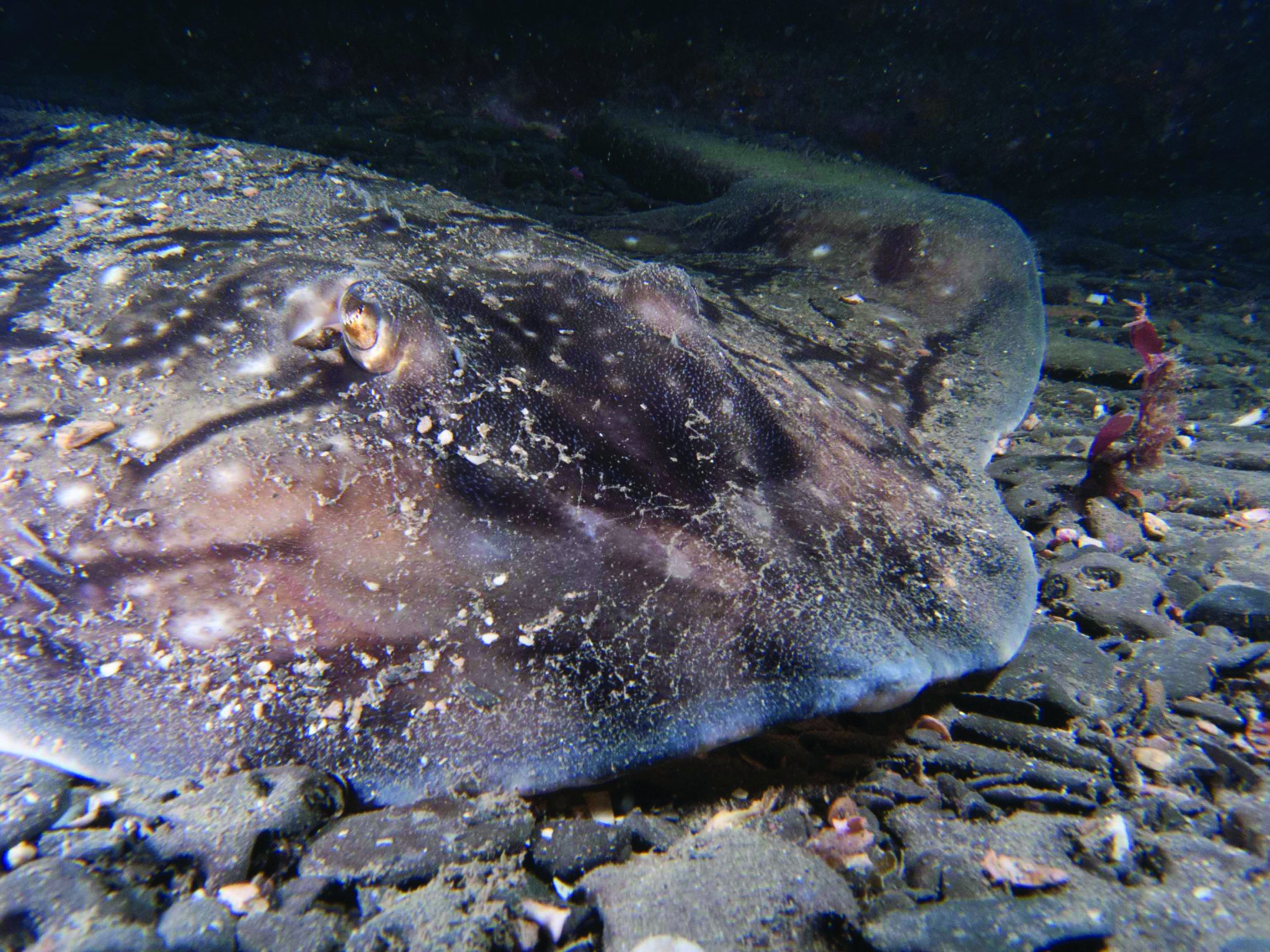
 In this series, the Shark Trust will be sharing amazing facts about different species of sharks and what you can do to help protect them.
In this series, the Shark Trust will be sharing amazing facts about different species of sharks and what you can do to help protect them.
This month we’re looking at the Undulate Ray. Easily identified by its beautiful, ornate pattern, the Undulate Ray gets its name from the undulating patterns of lines and spots on its dorsal side.
This skate is usually found on sandy or muddy sea floors, down to about 200 m deep, although it is more commonly found shallower. They can grow up to 90 cm total length. Depending on the size of the individual, their diet can range from shrimps to crabs.
Although sometimes called the Undulate Ray, this is actually a species of skate, meaning that, as all true skates do, they lay eggs. The eggs are contained in keratin eggcases – the same material that our hair and nails are made up of! These eggcases are also commonly called mermaid’s purses and can be found washed up on beaches all around the UK. If you find one, be sure to take a picture and upload your find to the Great Eggcase Hunt – the Shark Trust’s flagship citizen science project.
It is worth noting that on the south coasts, these eggcases can be confused with those of the Spotted Ray, especially as they look very similar and the ranges overlap, so we sometimes informally refer to them as ‘Spundulates’.
Scientific Name: Raja undulata
Family: Rajidae
Maximum Size: 90cm (total length)
Diet: shrimps and crabs
Distribution: found around the eastern Atlantic and in the Mediterranean Sea.
Habitat: shelf waters down to 200m deep.
Conservation Status : As a commercially exploited species, the Undulate Ray is a recovering species in some areas. The good thing is that they have some of the most comprehensive management measures of almost any elasmobranch species, with both minimum and maximum landing sizes as well as a closed season. Additionally, targeting is entirely prohibited in some areas. They are also often caught as bycatch in various fisheries – in some areas they can be landed whilst in others they must be discarded.
IUCN Red List Status: Endangered
For more great shark information and conservation visit the Shark Trust Website
Image Credits: Banner – Sheila Openshaw; Illustration – Marc Dando
-

 News3 months ago
News3 months agoHone your underwater photography skills with Alphamarine Photography at Red Sea Diving Safari in March
-

 News2 months ago
News2 months agoCapturing Critters in Lembeh Underwater Photography Workshop 2024: Event Roundup
-

 Marine Life & Conservation Blogs2 months ago
Marine Life & Conservation Blogs2 months agoCreature Feature: Swell Sharks
-

 Blogs2 months ago
Blogs2 months agoMurex Resorts: Passport to Paradise!
-

 Blogs2 months ago
Blogs2 months agoDiver Discovering Whale Skeletons Beneath Ice Judged World’s Best Underwater Photograph
-

 Gear News3 months ago
Gear News3 months agoBare X-Mission Drysuit: Ideal for Both Technical and Recreational Divers
-

 Gear Reviews2 months ago
Gear Reviews2 months agoGear Review: Oceanic+ Dive Housing for iPhone
-

 Marine Life & Conservation2 months ago
Marine Life & Conservation2 months agoSave the Manatee Club launches brand new webcams at Silver Springs State Park, Florida


